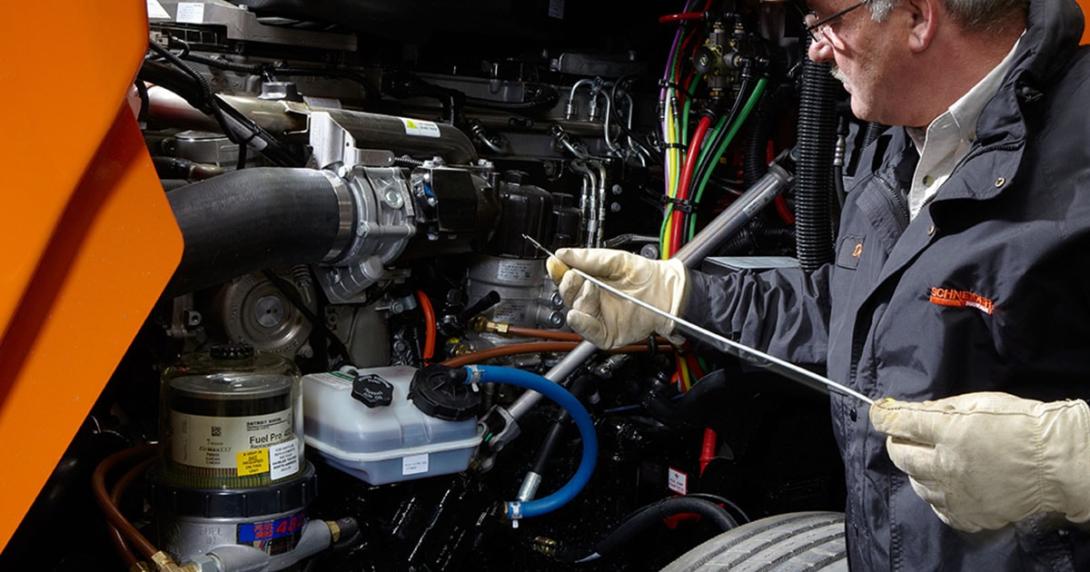Engine Oil and Coolant Use
Engine oil and coolant are crucial for the longevity and success of your heavy duty trucks engine. Being aware of these fluid levels and current condition may reveal the status of your engine and help prevent problems that may lead to damage of your engine and DPF (diesel particulate filter).
As an operator, the engine oil in your heavy duty truck should be checked daily or upon pre-trip inspection. An increase in engine oil consumption raises the ash load in the DPF, causing more frequent DPF cleanings, which can also increase the possibility of the filter plugging. Check to ensure that the engine is not consuming oil at a rate higher than recommended by the engine manufacturer. Lastly, track the oil by logging the amount added to the engine between oil changes. Upon this same interval of daily or pre-trip inspection, the driver should check for any coolant leaks. Checking the radiator, hoses, and radiator cap for any leaks will help determine radiator system failure before it occurs during operation. System failure can cause harm to your trucks engine through overheating if excessive leaking occurs.
Diesel technicians should also be aware of oil status when servicing a truck. These duties include intervals such as servicing per manufacture, checking at service and performing annually.
Changing the oil according to manufacturer’s specifications is necessary as noncombustible components in the oil collect as ash in the DPF. Use only low ash oil as specified by the engine manufacturer. Do NOT overfill the oil or “top off” if the vehicle does not require it as this can cause serious engine problems. When serviced check for oil leaking from vent tube. Oil leaking from the vent tube could mean that the engine is worn, and compression is getting past the rings and pressurizing the crankcase. Power will be lost and emissions will increase and could result in plugging of the DPF. (Most engines sold since 2007 utilize a closed crank case ventilation system and do not vent to the atmosphere.) In addition, an oil analysis by a laboratory should be performed. Oil will be analyzed by a lab for metal fragments, coolant and other contaminants. The results of the analysis can alert for catastrophic failure, detecting a problem before it occurs. (Analysis costs between $15 to $30.)
As far as coolant, a diesel tech should check for leaks, contamination and excess consumption while servicing the truck. Performing a pressure-test to the radiator is an extra measure that can be performed to sufficiently check for leaks. Coolant consumption in the engine can poison the DPF and lead to filter plugging. The technician should track coolant to make sure the engine is not consuming coolant at a higher rate than recommended by the manufacturer.
This information was provided in conjunction with the California Council on Diesel Education and Technology (CCDET), a non-profit cooperative group of California Community Colleges, the diesel industry, and government agencies, supporting training and educational programs for diesel mechanics.

